#Confirmation Bias
Explore tagged Tumblr posts
Text
Nobody is immune to propaganda and flattery. Today's example is Nicholas Kristof.
Kristof has won two Pulitzer prizes for journalism and is a columnist for the New York Times. One could be forgiven for hoping that Kristof might be harder to sucker than the average illiberal left campus Hamasnik, but it turns out that speaking to his orientalist, white savior ego and confirming biases is so effective that he'll skip doing *any* basic journalism.
Here's Kristof on 1/31/25, using a Twitter post from Omar Hamad as an example to argue that it is wrong to suggest that Palestinians overwhelmingly support Hamas and the attacks of 10/7/23.
In his post, Hamad shows a copy of a book Kristof co-authored and gives it a glowing review.

Kristof clearly enjoyed the glowing praise and responded by arguing that Omar Hamad shows us how Palestinians are clearly sensitive and tolerant.
To be clear, I'm sure many Palestinians are sensitive and tolerant, but Omar Hamad isn't one of them and this is an ironic way to make the argument.
Here are other tweets from Omar Hamad:


"O God, take the Jews and wash the earth with them and make our land their graves"

"By God, mother, God's victory can only be achieved through blood."

The truth is that neither my family nor I were ever part of Hamas. We lived in Gaza like any other family that did not belong to Hamas. However, I deeply regret that. I regret not being part of October 7, and I regret not firing a rocket at our occupied lands. I regret not killing an Israeli soldier. This regret has been planted within every person in Gaza, even in those who were opposed to Hamas's ideology. You are nothing but bloodthirsty butchers. You could have gained the sympathy of the entire world, but you revealed your true nature, your vile, Nazi- like, bloodstained face. Do not think that just because you hold power now, you are right or eternal, immune to defeat. Let me remind you, in one era, no force was greater than the Mongols, but their time came, and they were defeated. In another period, no one was more powerful than the Nazis, yet they too were defeated. Now, it is you, and I tell you, you will be defeated. If not now, then in the years to come.
Kristof didn't even bother to look up who was heaping this praise on him. He saw the praise, he let his confirmation bias and ego fill in the blanks instead of trying...you know...investingating, reading, looking for supportable facts, questioning sources, examining biases...you know...journalism.
The only thing which makes this example of falling for flattering confirmation bias bait extraordinary is that it's a Pulitzer Prize winner doing it - this is exactly what's happening every minute among the west's far left and we can see their disdain for facts and reason all over social media. Their disregard for intellectual rigor and intellectual honesty is comparable to that of the MAGA dittoheads on the far right.
This the intellectual laziness, these are the unexamined set of biases which animate the anti-Israel campus protestors who wave the flags of Islamist movements like Hamas, Hezbollah, and the Houthis. Movements who would happily murder their useful idiots at Columbia University and Harvard.
They are markedly more susceptible to propaganda which speaks to their white savior views of themselves...than this two-time winner of the Pulitzer Prize.
#illiberal left#Legacy media failure#Nicholas Kristof#New York Times#pulitzer prize#Confirmation bias#You are not immune to propoganda#I/P#free gaza from hamas#gaza
91 notes
·
View notes
Note
What's so bad about angel numbers?
So the main problem with angel numbers that I see, is that they make people feel really certain about things that have nothing to do with reality.
For example, you might have this spiritual kinda person who meets this New Ager who's deep into QAnon-type conspiracy theories, and while they're chatting the first person sees that the clock says 11:11 and thinks that she must be on the right path. So she feels really, really sure of herself when she comes out of this conversation convinced that Donald Trump is saving children from satanic blood-drinking pedophiles.
The same kind of thing can happen with any kind of synchronicity, of course. (Or seeming synchronicity, at least. The frequency illusion is a hell of a thing.) Confirmation bias pulls people deeper and deeper into worldviews and beliefs completely unhinged from reality.
And like, I've experienced synchronicities myself, some of which seem way too wild to be coincidental, so I know how compelling these experiences can be. But at the same time, I know that these synchronicities had nothing to do with any sort of grand spiritual journey toward the truth, because they were basically always about whatever random shit I was fixating on at the time. This whole idea that synchronicities must be some grand cosmic sign is extremely dangerous.
358 notes
·
View notes
Text
I really wish more people on the left/blue side of things in the US would start verifying things before sharing. There is twisted information on both sides, and I'm seeing so many people doing the exact same thing we like to crucify the right for - sharing/reposting/amplifying something just because it alines with our beliefs/fears/narrative. Without fact checking or independent verification.
Search engines are free.
Idc how much you trust the source - even trusted, reliable sources can be wrong sometimes. Verify it for yourself.
I'm not saying they're necessarily willfully lying to us. There is so much information coming at all of us at such an incredible rate that it is easy to misunderstand, misinterpret, misread, take something out of context or simply get swept up in the emotion of it all and forget to fact check.
Also, we're only human. Those of us with a working moral compass, a heart and more than two functioning brain cells are quite rightly terrified/experiencing a rollercoaster of emotions. It is easy to get caught up in that to the point that it takes over. Stop. Take a deep breath. Back away from the social media and go look it up with a proper search engine. Sometimes you might be pleasantly surprised.
This entire situation is exhausting enough without repeated facepalms from seeing people I know and love on the left spreading misinformation simply because it is plausible and/or aligns with the narrative they want.
#politics#independent verification#fact check#look it up yourself#tiktok is not a search engine#misinformation#confirmation bias#narrative#google is free#do the work#do the right thing#democrats#liberals#leftist#blue#vote blue#antifascist#anti maga#usa#us politics#fuck trump#mental health#america#common sense#compassion#coping#diy#election 2024#fears#lgbtq
45 notes
·
View notes
Text
It is just so funny to me to see popular posts making fun of climate change deniers, alongside similarly popular anti-vegan posts engaging in the kind of denialism that would make a flat-earther blush. But who needs a source when you have confirmation bias?
77 notes
·
View notes
Text

"If you do or do not believe in god and do or do not repost this something will or will not happen."
I couldn't believe it! It worked for me!
#confirmation bias#unfalsifiable#unfalsifiability#horoscopes#prayer#horoscope#prayers#pray#praying#religion is a mental illness
78 notes
·
View notes
Text
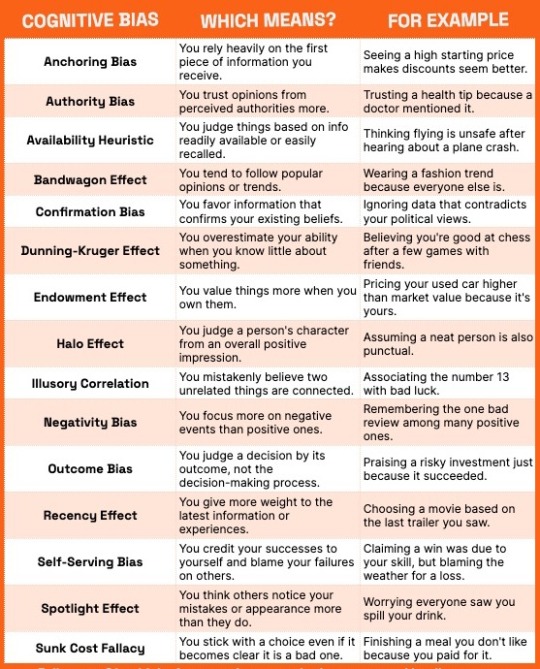
A list of cognitive biases
#cognitive bias#cool guides#pattern#judgement#rationality#psychology#bad decisions#decisions#rational choice#confirmation bias#cognition#jury trial#superiority#halo effect#outcome bias#correlation#dunning kruger#social influence#Unconscious mind
46 notes
·
View notes
Text
Confirmation Bias Tendency to search for, interpret, favor, and recall information that confirms or strengthens one’s prior personal beliefs or hypotheses. It is a type of cognitive bias
8 notes
·
View notes
Text

#yuko with the deep deep knowledge#yuko ichihara#yuuko ichihara#ichihara yuko#xxxholic#clamp#manga#manga panel#monochrome#manga aesthetic#mysticism#mystical#spiritual#mystic#occult#occultism#destiny#fate#or as I like to call it#psychology#and#confirmation bias#but still going to tag it with spiritual because I like that lmao#and get rekd watanuki#forgot this tag:#predestination#predestiny
42 notes
·
View notes
Note
Plural community uses a word that already exists to describe an experience → a fictional medium uses that word → said fictional medium becomes popular → all instances of the phrase are now because of said popular fictional medium → everyone who uses phrase is just a fan of popular thing and therefore a faker
This is about NPC/digital circus btw
You know, this actually demonstrates some fun aspects of confirmation bias in r/systemscringe beliefs.
I saw this with certain members of the hatesub also assuming every religious headmate people had was based on Hazbin Hotel after it was released. Despite the fact that religious headmates are very well-documented in academic literature.
It's not too surprising how, since one of the sub's core beliefs is that "fakers" always form alters from popular media, they would associate terminology in the plural community with popular media which then confirms their pre-existing beliefs. Even when there's no connection between the two.
Because yeah, NPC has been in the community forever. I first saw the term on r/tulpas before I ever made this blog.
I've personally used it since long before the Amazing Digital Circus ever aired. But to r/systemscringe, they just this as something I got from a popular show. 🤷♀️
#syscourse#systempunk#syspunk#the amazing digital circus#amazing digital circus#multiplicity#psychology#biases#confirmation bias#systemscringe#r/systemscringe#hate groups#hate group#reddit
8 notes
·
View notes
Text
Last thought before bed:
If you are going "omg looking back it is so obvious DJ and Ty were dating!!" and your sources are the same public-facing sources anyone has (insta photos of two people who like each other because they were both on a show with famous amounts of cast-likability): you didn't know shit. You're just doing a cannon ball into the worst kind of confirmation bias.
You didn't know. And it's fucking weird you are trying to pretend like you knew. And it's fucking weird to act like there were any loud clues to point you in that direction.
"BUT GAYLE THE KISSING PHOTO--"
The one at someone's birthday with Ty in a sailor hat? That one? The one that looks like any number of fun, casual, goofy moments between two men even when one of them is an out gay man?
You didn't know. It's fucking weird and uncomfortable to act like you did. These are two actual people not characters from that mid-tier show we all watched. Knock it off.
#ty olsson#dj qualls#supernatural#confirmation bias#queer shit#queer people don't exist to prove you right#we just exist#queer rage
20 notes
·
View notes
Text
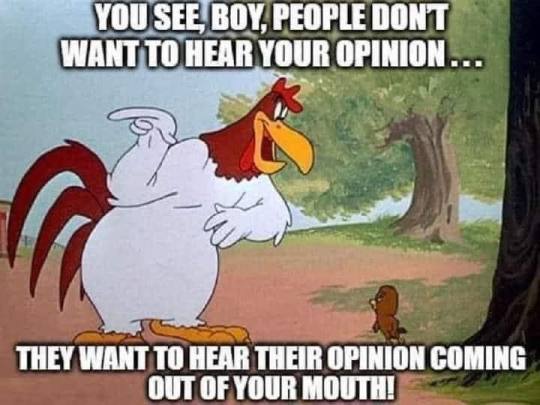
22 notes
·
View notes
Text

Dogstomp #2854 - October 30th
Patreon / Twitter / Discord Server
#confirmation bias#comic diary#daily comic#comic journal#autobio comics#comics#webcomics#october 30 2022#comic 2854
52 notes
·
View notes
Text




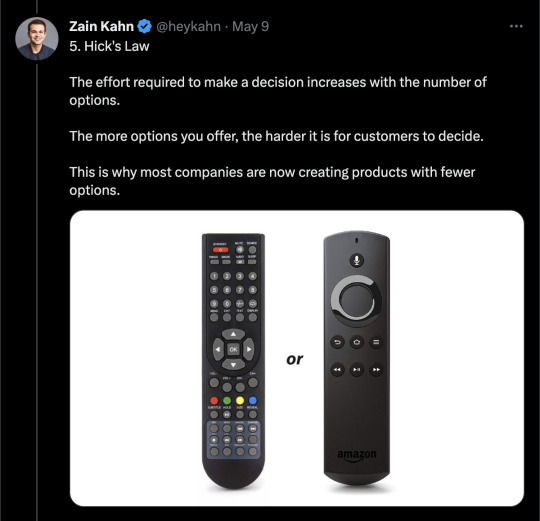

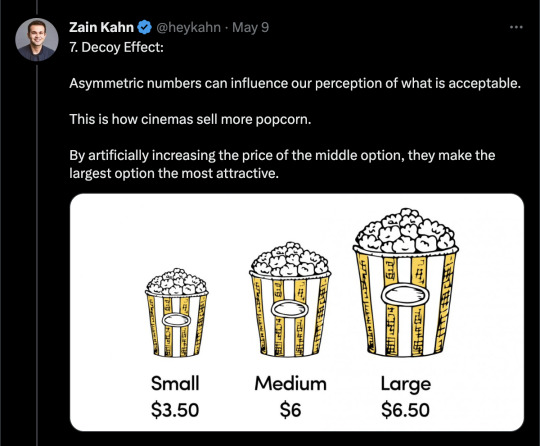
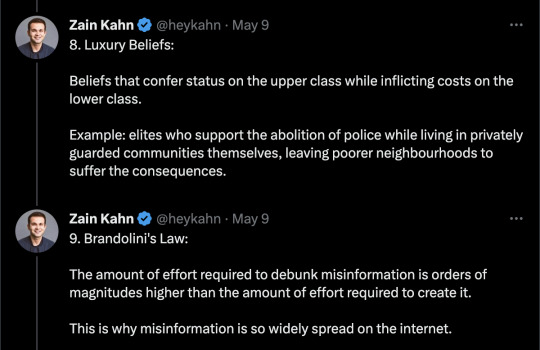
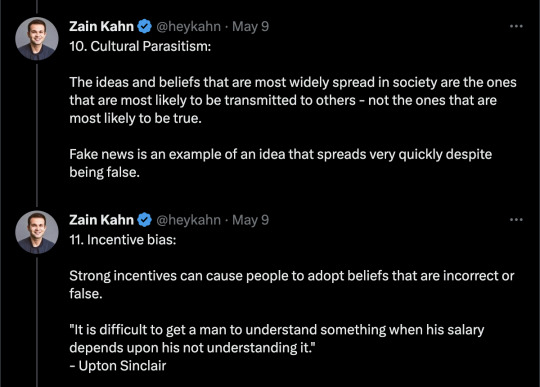

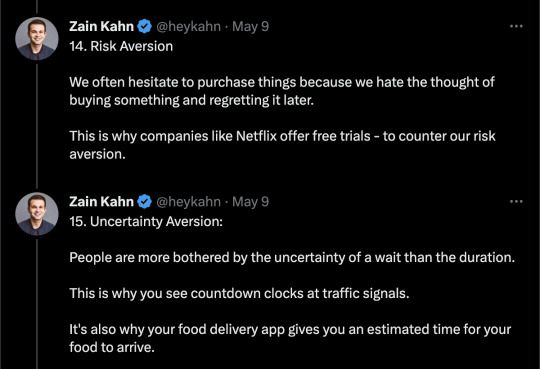
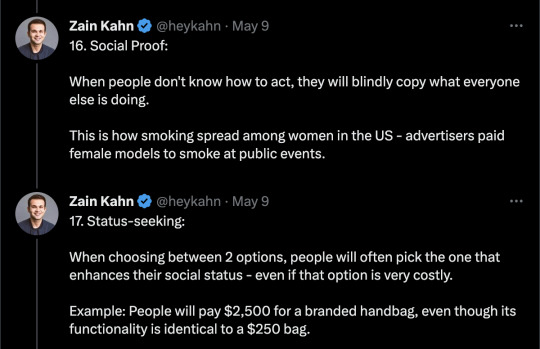

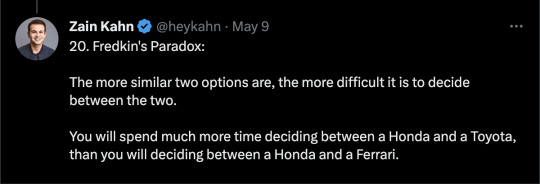
#Zain Kahn#Cunningham's Law#The Lindy Effect#Dunning Kruger Effect#confirmation bias#Hick's Law#The Streisand Effect#Decoy Effect#Luxury beliefs#Brandolini's Law#Cultural parasitism#Incentive bias#Reciprocity bias#Mimetic desire#risk aversion#uncertainty aversion#social proof#status seeking#evolutionary mismatch#Metcalfe's Law#Fredkin's Paradox#human psychology#psychology#cognitive biases#cognitive flaws#religion is a mental illness
132 notes
·
View notes
Text
Dangers of Disinformation/Misinformation
So, I was getting tired of an acquaintance who was continually posting extremely biased and often misinformed things on another site. At the end of another one of these ridiculous copy-pasted posts, was the question "So, what really divides Canadians?"
Well, that was a question that I was entirely prepared to answer.
TL:DR - do your research and beware of emotional reactions and confirmation bias. ---------------------------- Here is the exact response to her post
I am going to ignore much of what is posted here, though I will say ALL sides of the political spectrum are guilty of much wrongdoing and to focus or accuse only one side is a misinformation tactic.
What I will do, is answer the question at the end of the post and, I am sorry, it is a long answer that only covers one of the biggest aspects of the question:
What divides Canadians?
I think the best place to start is with the recently released Special Report on Foreign Interference. Whether foreign or domestic in origin, the biggest threat to our democratic processes is disinformation (intentional) and misinformation (unintentional) through both traditional and social media. These things aim to distort the public’s perception of reality.
What starts as disinformation can quickly become misinformation as people spread it without checking to make sure of the facts is due to confirmation bias. Now, this can occur on all sides of the political spectrum. Beyond confirmation bias, one of the reasons disinformation is so dangerous is because it designed to feed into our emotions and amplify them.
Some of the easiest emotions to manipulate are things like fear and anger in its many forms which is why much of the disinformation seen focuses on negative aspects. When disinformation is used to target any particular group of people, combined with the right language, it will create an intentional othering of that group. This is the beginning of a division between groups of people.
Now, anyone can be affected by these tactics as some methods are more subtle than others to try and catch those who can be more critical of the things they hear and read. It can be as simple as choosing a word with the same meaning, but a different connotation or emotional resonance to push thoughts and emotions towards certain beliefs.
And, the more one moves towards certain beliefs, the easier it is to manipulate those beliefs.
Now this is just basics, of the issue, but one of the largest things that create a divide between people, but that also leaves the question of:
What can we do to stop the spread of disinformation and misinformation?
There are a few things actually. First, always get your news and information from multiple sources. Ideally, find unbiased sources when possible. Media Bias Fact Check is a website that can help you check the bias of your sources and give you information on how factual their information is.
Avoid copy-paste posts that feed into your emotions without double-checking the facts of what is behind it yourself using multiple sources. The benefit is that if someone does choose to argue with what you posted, you have the facts to back it up.
Remember, no group is a monolith and one person is not always representative of an entire group. If what you are sharing uses language that seems to indicate either of these things, then you might want to do some more research or thinking before sharing it.
Lastly, take the time to think about your beliefs, about what facts support them, and be willing to have open and honest dialogue about it. Connecting with others, even through differing beliefs, can help keep people connected, foster understanding, and reduce the divide between us.
Most importantly, no matter what, keep learning, expanding and checking facts and when it comes time to voting, forget what the leaders of any party are saying. Anyone can say anything they want, that doesn’t mean they truly believe it or will follow through with it once elected into office.
If you want to know what they really think, the voting records for politicians are easy to find online for MPs and MLAs.
#Canadian politics#disinformation#do some research#media literacy is so damned important#confirmation bias
2 notes
·
View notes
Text
If you've ever found it puzzling that "do your own research" is a slogan for conspiracy theorists of all stripes, new research may have some answers. While conventional wisdom holds that researching the veracity of fake news would reduce belief in misinformation, a study published on Wednesday in Nature has found that using online search engines to vet conspiracies can actually increase the chance that someone will believe it. The researchers point to a known problem in search called "data voids." Sometimes, there's not a lot of high-quality information to counter misleading headlines or surrounding fringe theories. So, when someone sees an article online about an “engineered famine” due to COVID-19 lockdowns and vaccines, and conducts an unsophisticated search based on those keywords, they may find articles that reaffirm their bias.
18 notes
·
View notes
